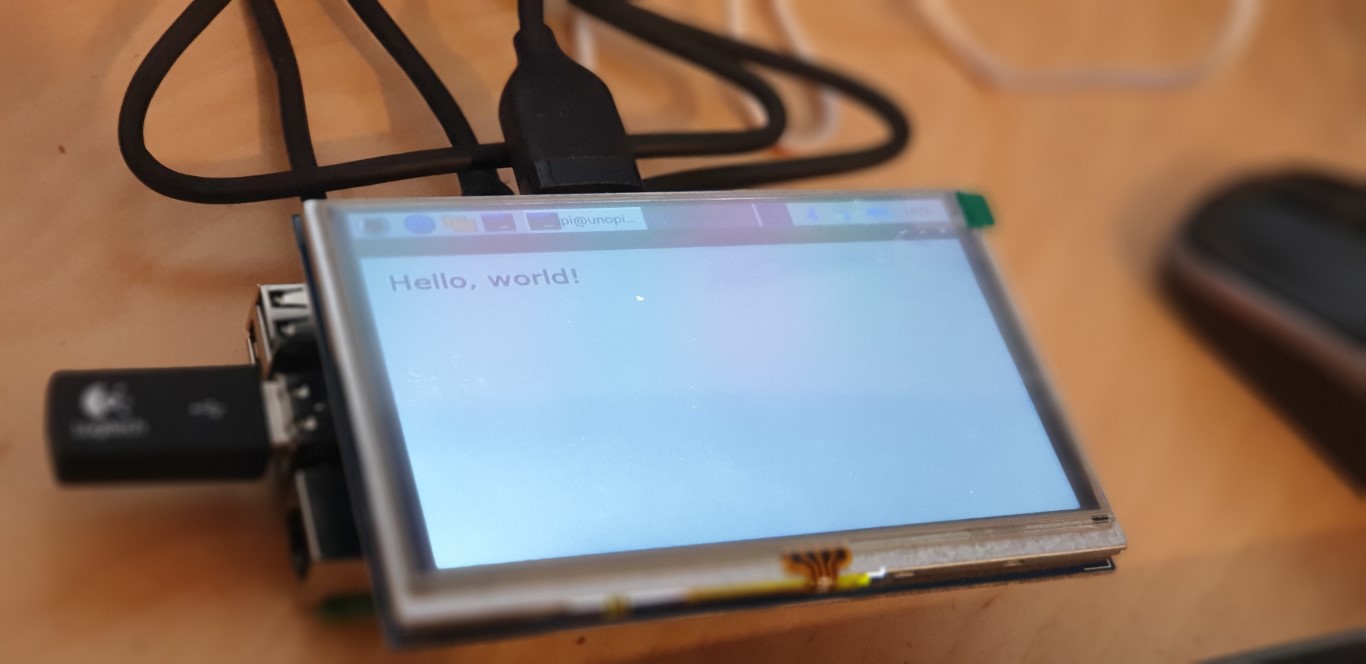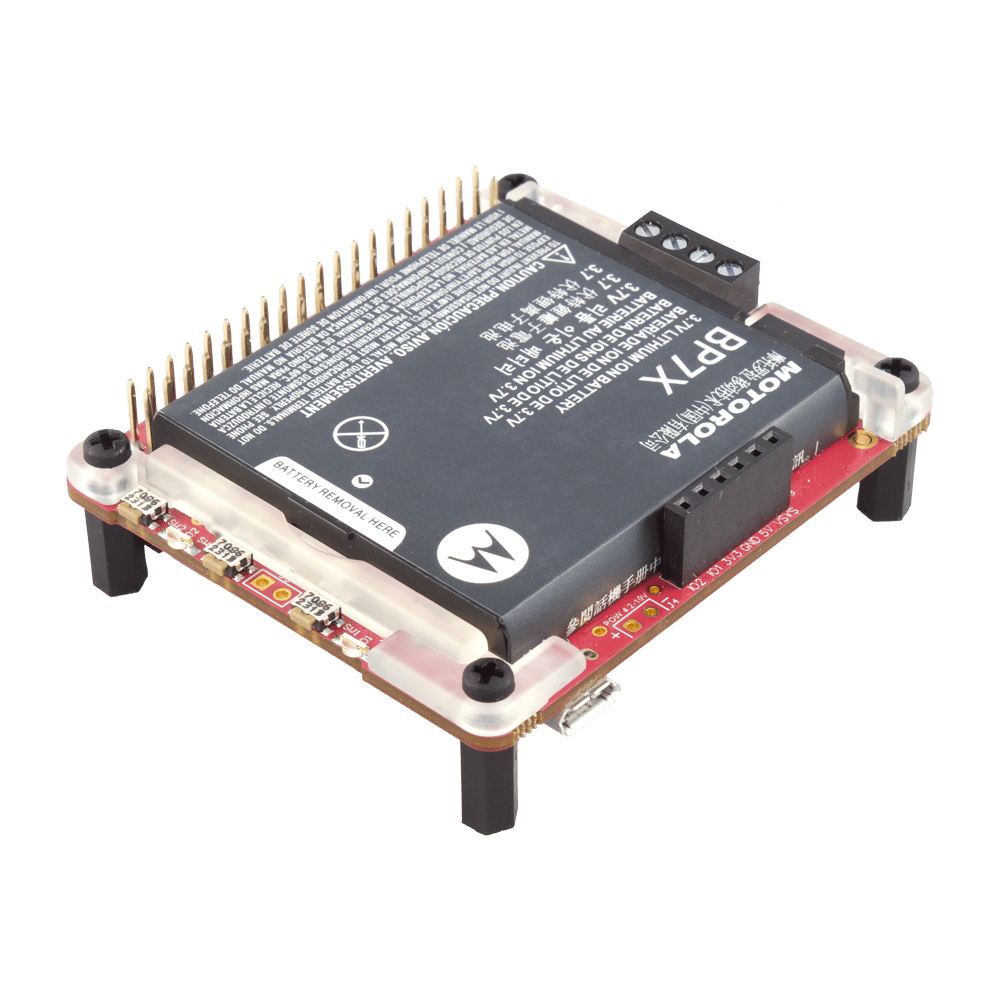Mastering Raspberry Pi Management Platform: A Comprehensive Guide
Raspberry Pi management platform has become an essential tool for developers, hobbyists, and professionals alike. With its versatility and affordability, the Raspberry Pi has taken the tech world by storm. Whether you're setting up a home automation system or managing a fleet of devices in an enterprise environment, understanding how to effectively manage Raspberry Pi devices is crucial.
The rise of IoT (Internet of Things) has further amplified the importance of Raspberry Pi management platforms. These platforms provide centralized control, remote monitoring, and automation capabilities that simplify the management of multiple Raspberry Pi units. As more businesses and individuals adopt Raspberry Pi for various projects, the demand for efficient management solutions continues to grow.
This article delves deep into the world of Raspberry Pi management platforms. We will explore the best practices, tools, and strategies to help you optimize your Raspberry Pi setup. By the end of this guide, you'll have a clear understanding of how to streamline your Raspberry Pi projects and take full advantage of its capabilities.
Read also:Sprunki Pyramixed New Update Unveiling The Latest Features And Enhancements
Table of Contents
- Introduction to Raspberry Pi Management Platform
- Why Managing Raspberry Pi Is Important
- Top Raspberry Pi Management Platforms
- Features of a Good Management Platform
- Remote Management and Monitoring
- Security Considerations for Raspberry Pi
- Best Practices for Managing Raspberry Pi
- Cost Considerations and Scalability
- Use Cases for Raspberry Pi Management
- Conclusion and Call to Action
Introduction to Raspberry Pi Management Platform
A Raspberry Pi management platform is a software solution designed to simplify the administration of Raspberry Pi devices. These platforms offer a centralized interface where users can configure, monitor, and manage multiple Raspberry Pi units from a single location. This is particularly useful for projects involving numerous devices, such as IoT deployments or educational setups.
One of the key advantages of using a management platform is the ability to perform tasks remotely. Whether it's updating software, troubleshooting issues, or deploying new applications, these platforms make the process efficient and hassle-free. Additionally, they provide valuable insights through analytics and reporting features, helping users optimize their Raspberry Pi setups.
For businesses and organizations, adopting a Raspberry Pi management platform can lead to significant cost savings and increased productivity. By streamlining operations and reducing downtime, these platforms ensure that Raspberry Pi devices function optimally, contributing to the overall success of projects.
Why Managing Raspberry Pi Is Important
As the adoption of Raspberry Pi continues to grow, so does the complexity of managing these devices. Without proper management tools, maintaining a fleet of Raspberry Pi units can become cumbersome and prone to errors. This is where a dedicated Raspberry Pi management platform comes into play.
Effective management ensures that all devices are synchronized, updated, and secure. It minimizes the risk of hardware failures and software glitches, which can disrupt operations and lead to costly repairs. Furthermore, it allows for better resource allocation and optimization, ensuring that each Raspberry Pi is utilized to its full potential.
In today's interconnected world, where IoT devices play a critical role, managing Raspberry Pi becomes even more vital. These platforms provide the necessary tools to handle the growing demands of modern technology, making them indispensable for anyone working with Raspberry Pi.
Read also:Hdhub4u South Indian Hindi Dubbed Your Ultimate Guide To Highquality Entertainment
Top Raspberry Pi Management Platforms
Raspberry Pi Dashboard
The Raspberry Pi Dashboard is a popular choice for managing individual or small-scale Raspberry Pi setups. It offers an intuitive interface that allows users to monitor system performance, manage applications, and perform routine maintenance tasks. The dashboard provides real-time data on CPU usage, memory consumption, and network activity, giving users a comprehensive overview of their device's status.
Some of the standout features of the Raspberry Pi Dashboard include:
- Real-time monitoring of system metrics
- Remote access capabilities
- Customizable alerts and notifications
- Support for multiple Raspberry Pi models
While the Raspberry Pi Dashboard is ideal for smaller projects, it may not scale well for enterprise-level deployments. For larger setups, more robust solutions are required.
BalenaCloud
BalenaCloud is a powerful cloud-based platform designed for managing fleets of Raspberry Pi devices. It offers advanced features such as automated updates, secure containerized deployments, and remote debugging capabilities. With BalenaCloud, users can manage thousands of devices from a single interface, making it perfect for large-scale IoT projects.
Key features of BalenaCloud include:
- Centralized device management
- Automated software updates
- Secure containerized applications
- Comprehensive analytics and reporting
BalenaCloud is particularly well-suited for businesses that require high levels of security and scalability. Its ability to handle complex deployments with ease makes it a top choice for professional Raspberry Pi management.
Features of a Good Management Platform
When selecting a Raspberry Pi management platform, it's important to consider the features that will meet your specific needs. A good platform should offer a combination of functionality, ease of use, and scalability. Here are some essential features to look for:
- Remote Access: The ability to manage devices from anywhere is crucial for modern projects.
- Security Features: Robust security measures, such as encryption and two-factor authentication, are essential to protect your devices.
- Automated Updates: Regular software updates ensure that devices remain secure and up-to-date.
- Monitoring Tools: Real-time monitoring provides valuable insights into device performance and health.
- Scalability: The platform should be able to handle growth, whether it's managing a few devices or thousands.
By choosing a platform with these features, you can ensure that your Raspberry Pi projects are well-managed and optimized for success.
Remote Management and Monitoring
Remote management and monitoring are two of the most important aspects of Raspberry Pi management platforms. These capabilities allow users to perform tasks and monitor device performance without needing physical access to the devices. This is especially beneficial for projects involving geographically dispersed devices or large-scale deployments.
Effective remote management includes features such as:
- Secure SSH connections
- File transfer capabilities
- Remote terminal access
- Automated backup and recovery
Monitoring tools, on the other hand, provide real-time data on system performance, helping users identify potential issues before they become critical. By combining remote management with comprehensive monitoring, users can maintain optimal device health and performance.
Security Considerations for Raspberry Pi
Security is a top priority when managing Raspberry Pi devices. As these devices often serve as entry points for larger networks, ensuring their security is crucial to protecting sensitive data and systems. A reliable Raspberry Pi management platform should offer robust security features to mitigate risks.
Some key security considerations include:
- Regular software updates to patch vulnerabilities
- Strong password policies and two-factor authentication
- Data encryption for both storage and transmission
- Intrusion detection and prevention systems
By implementing these security measures, users can safeguard their Raspberry Pi devices against potential threats and ensure the integrity of their projects.
Best Practices for Managing Raspberry Pi
To get the most out of your Raspberry Pi management platform, it's important to follow best practices. These practices will help you optimize your setup and ensure smooth operations. Here are some tips to consider:
- Regular Backups: Always keep backups of your data and configurations to prevent data loss.
- Documentation: Maintain detailed documentation of your setup, including device configurations and network settings.
- Testing: Regularly test your devices and applications to identify and resolve issues early.
- Updates: Stay up-to-date with the latest software and firmware updates to ensure optimal performance and security.
By adhering to these best practices, you can ensure that your Raspberry Pi projects run smoothly and efficiently.
Cost Considerations and Scalability
When evaluating Raspberry Pi management platforms, cost and scalability are important factors to consider. While some platforms offer free or low-cost options, others may require significant investment for enterprise-level features. It's essential to choose a platform that aligns with your budget and growth plans.
Cost considerations include:
- Subscription fees for cloud-based platforms
- Hardware costs for additional devices
- Maintenance and support costs
Scalability is equally important, especially for businesses that anticipate growth. A scalable platform should be able to handle increasing numbers of devices and more complex deployments without compromising performance.
Use Cases for Raspberry Pi Management
Raspberry Pi management platforms are versatile tools that can be applied to a wide range of use cases. From home automation to industrial IoT, these platforms provide the necessary tools to manage and optimize Raspberry Pi projects. Here are some common use cases:
- Home Automation: Manage smart home devices and automate tasks such as lighting and climate control.
- Industrial IoT: Monitor and control industrial equipment in real-time for improved efficiency.
- Educational Projects: Provide students with hands-on experience in managing Raspberry Pi setups.
- Enterprise Deployments: Handle large-scale deployments of Raspberry Pi devices for businesses.
By leveraging the capabilities of Raspberry Pi management platforms, users can unlock the full potential of their projects and achieve their goals.
Conclusion and Call to Action
In conclusion, Raspberry Pi management platforms are essential tools for anyone working with Raspberry Pi devices. They provide the necessary features to manage, monitor, and optimize these devices, ensuring smooth operations and minimizing downtime. By choosing the right platform and following best practices, you can take full advantage of the versatility and power of Raspberry Pi.
We encourage you to explore the various management platforms available and find the one that best suits your needs. Share your experiences and insights in the comments below, and don't forget to check out our other articles for more tips and guides on Raspberry Pi and related technologies. Together, let's build a smarter, more connected world!

